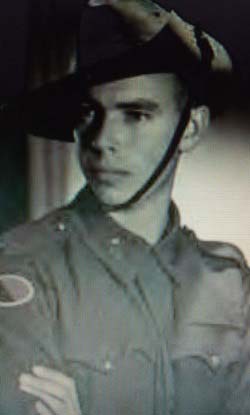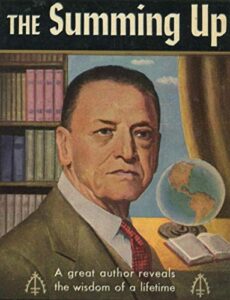During World War II, after his capture by the Japanese, an Australian artillery sergeant was marched off with a number of his comrades to the infamous Changi prisoner-of-war camp in Singapore. Sydney Piddington was nineteen, the year was 1942, and his captors had allowed him to bring only a small knapsack of personal possessions.

Among those possessions was one item that would be the key to his survival in the camp: a book by Lin Yutang called The Importance of Living. The book itself was significant, but it was the way he approached it that was to prove decisive. For it was during his first few days at Changi that Piddington, as he put it, “began a reading habit that was to keep me sane for the next three and a half years.”
With only one book, and no idea when, or if, he would be liberated, he decided to savor the book, slowly—very slowly.
He began by taking ample time to just gaze at the cover, the binding, and the illustrations inside the front cover. Then he dedicated three leisurely sessions to the preface, and two whole evenings to the table of contents: chapter headings and subtitles. Page one of the text still lay ahead of him, but Piddington was in no hurry.
He reveals how the process began to unfold: “I had started with the practical object of making my book last. But by the end of the second week, still only on page ten, I began to realize how much I was getting from super-slow reading itself. Sometimes just a particular phrase caught my attention, sometimes a sentence. I would read it slowly, analyze it, read it again—perhaps changing down into an even lower gear—and then sit for 20 minutes thinking about it before moving on. I was like a pianist studying a piece of music, phrase by phrase, rehearsing it, trying to discover and recreate exactly what the composer was trying to convey.”
It took Piddington more than two months to read The Importance of Living. After that, by a stroke of good fortune, other books began to find their way into the prison camp. But even with many books now available, he decided to stay with the super-slow method as he read biographies, philosophy—even a dictionary.
In his crowded cell at night, lying on a concrete floor, he began to read Deep Water and Shoal, William Robinson’s true story of his seafaring adventures: “I felt myself dropping off to sleep in a warm cabin, the boat pitching under me. Next day, I’d be on deck again, in a storm, gripping the helm, with the roar of the wind in my ears, my hair thick with salt. The realization dawned on me that, although my body was captive, my mind was free to roam the world.”
Of the books he read while at Changi, his favorite was The Summing Up by William Somerset Maugham: “I was no longer on a rough prison woodpile, wasting away from hunger; I was in an elegant drawing room on the French Riviera, a decanter of old port at hand, listening to a great writer talking just to me about his journey through life, passing on the wisdom he had gained.”

While a speed-reader might easily zip through Maugham’s book in less than an hour, Piddington devoted nine weeks to reading it. He continues, “I handled The Summing Up so much that it fell to pieces in the tropical heat. Then I carefully rebound it with dried banana leaves and rubber gum. I still have it, the most treasured volume in my bookcase.”
After his release from Changi, Piddington continued to benefit from super-slow reading: “Beyond giving me the will to survive in Changi, slow reading helps me today. Of course, super-slow reading is not for the man dealing with the Niagara of paper flowing across his desk. I can skim an inter-office memo as fast as the next person. But when faced with a real problem, to clear my mind of everyday clutter I will sit down quietly at home and slowly read myself into another world.”
HyC